Ricerca
Filtri applicati:
Raffina la ricerca
- Parola chiave
- Intervista (3)
- Storia del pensiero sociologico (3)
- Alessandro Cavalli (1)
- Bachelor’s degree graduates (1)
- Chiara Saraceno (1)
- Classical of Sociological Thought (1)
- Corsi di laurea in Sociologia e Scienze della Comunicazione (1)
- Courses in Sociology and Communication Sciences (1)
- Area di conoscenza
- Teorie sociologiche e trasformazioni sociali (45)
- Economia, lavoro e organizzazioni (31)
- Processi e istituzioni culturali (29)
- Metodologia (26)
- Studi di genere (9)
- Sociologia delleducazione (8)
- Politica sociale (7)
- Sociologia dell’educazione (5)
- Tipo contenuto
- Articolo di rivista (146)
- Intervista (14)
- Editoriali & Opinioni (3)
- Lingua
- Inglese (12)
- Francese (1)
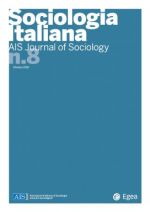
Imbalancing the academy: the impact of research quality assessment, di Ian McNay
Introduction It is thirty years since the first national approach to assessing research quality in a university system was introduced. The pioneer was the United Kingdom, in 1986, within a context where the Thatcher government had an agenda of «value for money» in public services, of containing the autonomy claimed by professionals, and increasing the accountability for the use of public funds. ...
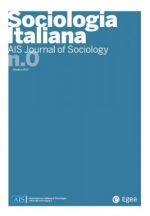
Recruitment Processes to Teaching and Research Positions in Institutions of German Higher Education: Basic Features, Historical Perspectives and Present Problems, di Claudius Gellert
Introduction The structural and functional changes occurring within the Western university systems have been manifold and considerable. However, many of these changes have largely remained dubious and opaque. For instance, the notion of the universities being above all research centres is sometimes treated almost like a sacred principle. Apart from the fact, however, that the European university ...
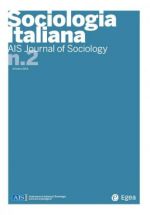
The Italian Sociological Tradition, di Roberto Cipriani
1. The far off beginning The vigour and rigour of Italian sociology’s development can only be explained by going back to the past, to the time of the Enlightenment in the 17th century, a movement begun in 1600 by Galileo Galilei, by the Florentine Accademia del Cimento («trying again and again») and by the Accademia degli Investiganti in Naples. In addition, a number of Italian scholars ...

Intervista a Luciano Gallino (Interview with Luciano Gallino), di Davide Borrelli
Inauguriamo la rubrica «l’intervista» pubblicando l’intervista che Luciano Gallino ci ha rilasciato nel gennaio 2012 in occasione della sua nomina a Presidente onorario dell’Associazione Italiana di Sociologia. In questa intervista il Professor Gallino tocca molti temi e affronta diverse importanti questioni. Ripercorre le tappe più significative della sua prestigiosa carriera di studioso, ...
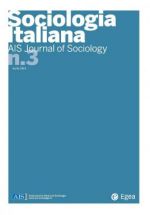
Critical Nature: Regenerating Human Experience and Society Through Gardening
Introduction Nature and society have traditionally been separate in modernity, where the identity of the latter was founded on the exclusion of the former from its boundaries. This separation is rooted in the history of Christianity and modern science, as well as in the affirmation of both the industrial society and the discipline that was born in the nineteenth century in order to understand its ...

Immigrants and Local Societies. Why and How to Measure Their Integration
Introduction The integration of immigrants into the advanced industrial societies, particularly the European ones, is a matter of current and urgent concern. With regard to Europe, and more specifically the European Union, migration from third countries is a quantitatively important phenomenon involving an increasingly large number of countries, both those that have historically been the destinations ...
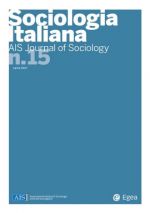
Neoliberal education reforms, student activism and youth conditions in Italy. Findings from a case study on three Italian student organisations, by Lidia Lo Schiavo
Introduction Young people are currently experiencing radical changes in their life conditions. In fact, a series of reforms in education and welfare (traced by scholars back to a «global transition regime») implemented over the last three decades have hugely impacted on youth conditions in general and on students’ livelihood and opportunities in particular (Woodman and Wyn 2014; France 2016). The ...
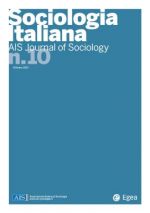
Visual artists in the German Democratic Republic and their cultural exchange with Italy. A brief overview, di Silvana Greco
Introduction Since the foundation of the German Democratic Republic (7 October 1949) and until its end (3 October 1990, accession to the FRG), there were different cultural exchanges between the visual artists – painters, graphic artists, designers, stage designers, sculptors – of the GDR and their colleagues in Italy. The cultural policy of the GDR was interested not only in the culture of the ...
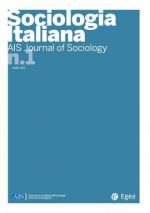
Intervista a Franco Crespi (Interview with Franco Crespi), di Lello Savonardo
Nella presente intervista, Franco Crespi, tra i più autorevoli e prestigiosi sociologi italiani, ripercorre le principali tappe della sua carriera scientifica, soffermandosi su alcuni dei temi più rilevanti che caratterizzano il dibattito contemporaneo nelle scienze sociali. Nato a Crespi d’Adda (MI), il villaggio industriale creato da suo bisnonno Cristoforo e ora dichiarato dall’UNESCO ...

German universities on their way to performance-based management of research portfolios, di Jochen Gläser
Introduction I am indebted to Uwe Schimank for helpful comments. The rise of «new public management» (NPM) in higher education systems of many OECD countries is based on, and fuels, research evaluation as a political and management tool. Central tenets of NPM – that competition increases efficiency, that resources need to be allocated to the best-performing units, and that hierarchical management ...